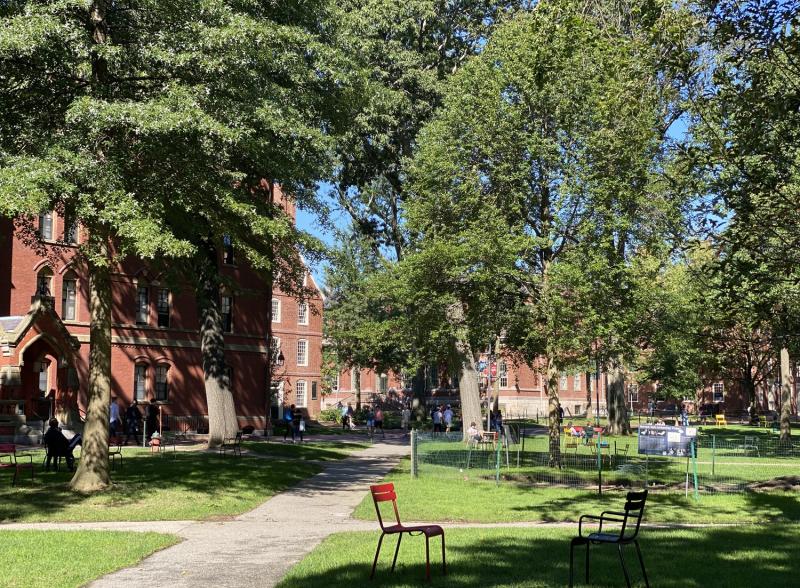Article
Dear Students,
Whether you attended Convocation or read about it afterward, you’ve likely encountered references to “intellectual vitality.” We’re writing to say a bit more about what intellectual vitality has meant and why it matters—and to invite you to take the lead in determining what it will be.
Intellectual vitality began with a handful of students who felt that they weren’t having the kinds of conversations they’d come to Harvard for: in class, they found themselves saying what they thought others wanted to hear, for fear of being criticized or judged if they spoke their own minds; even among their friends, they kept certain views and beliefs to themselves. The result was a pervasive sense of inauthenticity and alienation. To counter this, these students decided to describe what they wanted their College experience to be. They came up with the term “Intellectual Vitality,” and they worked with a small group of faculty to draft a statement describing what it entailed. They kept this statement in draft form, a sign of their hope that other students would carry on the cause after them. Many students have done so, in a host of different ways. Most recently, a number of Crimson editors encouraged the incoming first years to “keep listening and debating with an open mind”; to “brave the discomfort” and “do your very best not to cause it in others”; to learn how to disagree and then “share a beer and crack a joke.” (The joke-cracking is for everyone. The beer-sharing? For those who’ve already turned 21).
The future of intellectual vitality is up to you. You can help lead the program by applying to join the Intellectual Vitality Student Advisory Committee, and you can propose events here. These events can take any form, large-scale or small, serious or light-hearted. Last week, students gathered in the Yard to sit in over-sized chairs and talk with strangers, asking and answering questions with the roll of a die. Later in the semester, students will get the chance to have dinner with faculty and discuss questions raised by current events. Two of these dinners have already been scheduled: “Why is Harvard the Focus of So Much Political Attention?” with Ryan Enos and Steve Levitsky (October 21); and “Pursuing Reconciliation After Ethnic Conflict” with Melani Cammett and Mina Cikara (November 14). You can also work with the Fellows in Value Engagement who will be designing events for your houses and yards. Keep an eye out for these opportunities in the College Calendar and the Weekly Update. Or commit to pursuing intellectual vitality in your own way, whether by joining clubs that encourage discussion, by writing op-eds expressing your views, or simply by speaking more authentically with the people around you.
Wishing you a year of enriching and enlivening conversation,
Rakesh, Amanda, and Tom
Rakesh Khurana
Danoff Dean of Harvard College
Amanda Claybaugh
Dean of Undergraduate Education
Zemurray Stone Radcliffe Professor of English
Harvard College Professor
Thomas Dunne
Dean of Students

